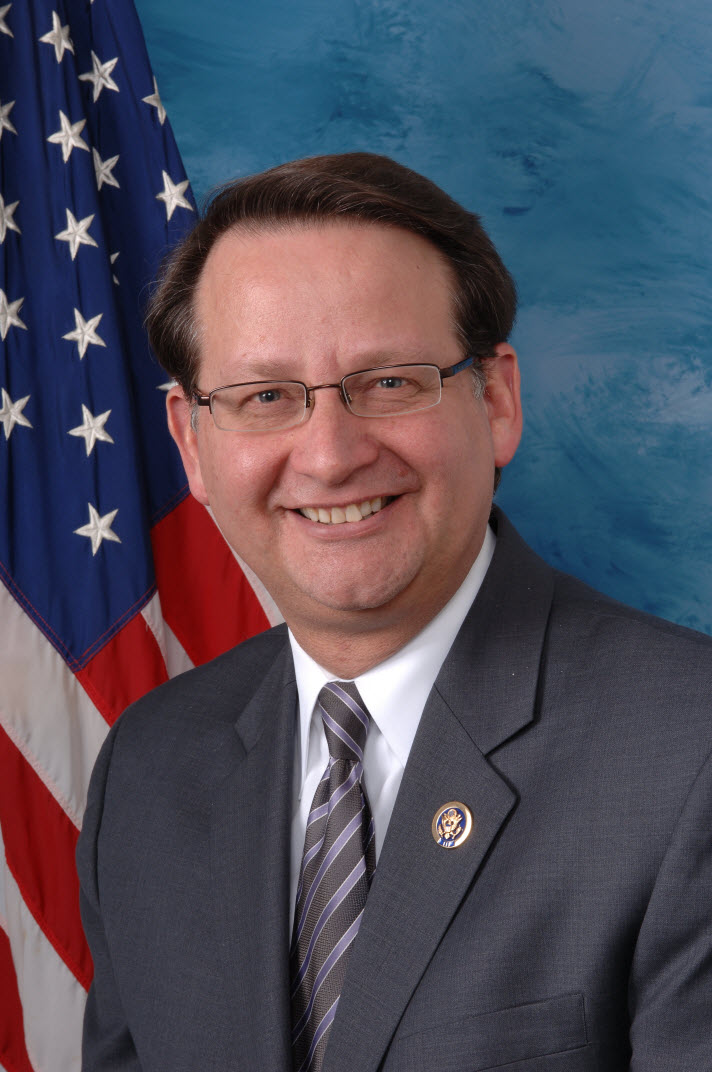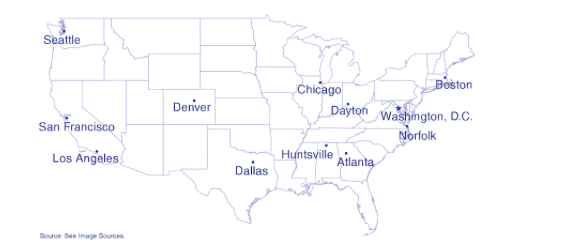|
United States Senate Committee On Governmental Affairs
The United States Senate Committee on Homeland Security and Governmental Affairs is the chief oversight committee of the United States Senate. It has jurisdiction over matters related to the Department of Homeland Security and other homeland security concerns, as well as the functioning of the government itself, including the National Archives, budget and accounting measures other than appropriations, the Census, the federal civil service, the affairs of the District of Columbia and the United States Postal Service. It was called the United States Senate Committee on Governmental Affairs before homeland security was added to its responsibilities in 2004.U.S. Senate Committee on Homeland Security and Governmental Affairs official website It serves as the Senate's chief investigative and oversight committee. Its chair is the only Senate committee chair who can issue subpoenas without a committee vote. History While elements of the committee can be traced back into the 19th cent ... [...More Info...] [...Related Items...] OR: [Wikipedia] [Google] [Baidu] |
Gary Peters
Gary Charles Peters Sr. (born December 1, 1958) is an American lawyer, politician, and former military officer serving as the junior United States senator from Michigan since 2015. A member of the Democratic Party, he was the U.S. representative for , which includes the eastern half of Detroit, the Grosse Pointes, Hamtramck, Southfield, and Pontiac, from 2013 to 2015. He represented from 2009 to 2013. Before his election to Congress, Peters served in the United States Navy Reserve, spent 22 years as an investment advisor, and worked briefly in academia. He was elected to the Rochester Hills City Council in 1991 and represented the 14th district in the Michigan Senate from 1995 to 2002. He was the Democratic nominee for Michigan Attorney General in 2002, narrowly losing to Republican Mike Cox. He was then appointed commissioner of the Michigan Lottery by Governor Jennifer Granholm, serving from 2003 to 2008, when he resigned to successfully run for Congress. In 2014, Pet ... [...More Info...] [...Related Items...] OR: [Wikipedia] [Google] [Baidu] |
Nuclear Security
Nuclear safety is defined by the International Atomic Energy Agency (IAEA) as "The achievement of proper operating conditions, prevention of accidents or mitigation of accident consequences, resulting in protection of workers, the public and the environment from undue radiation hazards". The IAEA defines nuclear security as "The prevention and detection of and response to, theft, sabotage, unauthorized access, illegal transfer or other malicious acts involving nuclear materials, other radioactive substances or their associated facilities". This covers nuclear power plants and all other nuclear facilities, the transportation of nuclear materials, and the use and storage of nuclear materials for medical, power, industry, and military uses. The nuclear power industry has improved the safety and performance of reactors, and has proposed new and safer reactor designs. However, a perfect safety cannot be guaranteed. Potential sources of problems include human errors and external even ... [...More Info...] [...Related Items...] OR: [Wikipedia] [Google] [Baidu] |
Office Of E-Government & Information Technology
The Office of E-Government & Information Technology, also called the E-Gov office or the Office of the Federal CIO (OFCIO), develops and guides the U.S. federal government's use of Internet-based technologies for the public to interact with the government. The office is part of the Office of Management and Budget. The E-Gov office is headed by the Federal Chief Information Officer of the United States. at OMB's site History The defined and authorized creation of this office.See also * |
National Archives And Records Administration
The National Archives and Records Administration (NARA) is an " independent federal agency of the United States government within the executive branch", charged with the preservation and documentation of government and historical records. It is also tasked with increasing public access to those documents which make up the National Archive. NARA is officially responsible for maintaining and publishing the legally authentic and authoritative copies of acts of Congress, presidential directives, and federal regulations. NARA also transmits votes of the Electoral College to Congress. It also examines Electoral College and Constitutional amendment ratification documents for prima facie legal sufficiency and an authenticating signature. The National Archives, and its publicly exhibited Charters of Freedom, which include the original United States Declaration of Independence, United States Constitution, United States Bill of Rights, and many other historical documents, is headquarte ... [...More Info...] [...Related Items...] OR: [Wikipedia] [Google] [Baidu] |
General Services Administration
The General Services Administration (GSA) is an independent agency of the United States government established in 1949 to help manage and support the basic functioning of federal agencies. GSA supplies products and communications for U.S. government offices, provides transportation and office space to federal employees, and develops government-wide cost-minimizing policies and other management tasks. GSA employs about 12,000 federal workers. It has an annual operating budget of roughly $33 billion and oversees $66 billion of procurement annually. It contributes to the management of about $500 billion in U.S. federal property, divided chiefly among 8,700 owned and leased buildings and a 215,000 vehicle motor pool. Among the real estate assets it manages are the Ronald Reagan Building and International Trade Center in Washington, D.C., which is the largest U.S. federal building after the Pentagon. GSA's business lines include the Federal Acquisition Service (FAS) and t ... [...More Info...] [...Related Items...] OR: [Wikipedia] [Google] [Baidu] |
Federal Emergency Management Agency
The Federal Emergency Management Agency (FEMA) is an agency of the United States Department of Homeland Security (DHS), initially created under President Jimmy Carter by Presidential Reorganization Plan No. 3 of 1978 and implemented by two Executive Orders on April 1, 1979. The agency's primary purpose is to coordinate the response to a disaster that has occurred in the United States and that overwhelms the resources of local and state authorities. The governor of the state in which the disaster occurs must declare a state of emergency and formally request from the President that FEMA and the federal government respond to the disaster. The only exception to the state's gubernatorial declaration requirement occurs when an emergency or disaster takes place on federal property or to a federal asset—for example, the 1995 bombing of the Alfred P. Murrah Federal Building in Oklahoma City, Oklahoma, or the Space Shuttle ''Columbia'' in the 2003 return-flight disaster. While on-th ... [...More Info...] [...Related Items...] OR: [Wikipedia] [Google] [Baidu] |
Government Accountability Office
The U.S. Government Accountability Office (GAO) is a legislative branch government agency that provides auditing, evaluative, and investigative services for the United States Congress. It is the supreme audit institution of the federal government of the United States. It identifies its core "mission values" as: accountability, integrity, and reliability. It is also known as the "congressional watchdog". Powers of GAO The work of the GAO is done at the request of congressional committees or subcommittees or is mandated by public laws or committee reports. It also undertakes research under the authority of the Comptroller General. It supports congressional oversight by: * auditing agency operations to determine whether federal funds are being spent efficiently and effectively; * investigating allegations of illegal and improper activities; * reporting on how well government programs and policies are meeting their objectives; * performing policy analyses and outlining options for ... [...More Info...] [...Related Items...] OR: [Wikipedia] [Google] [Baidu] |
Domestic Nuclear Detection Office
The Domestic Nuclear Detection Office (DNDO) is a jointly staffed office established on April 15, 2005 by the United States to improve the nation’s capability to detect and report unauthorized attempts to import, possess, store, develop, or transport nuclear or radiological material for use against the nation, and to further enhance this capability over time. DNDO coordinates United States federal efforts to detect and protect against nuclear and radiological terrorism against the United States. DNDO, utilizing its interagency staff, is responsible for the development of the global nuclear detection architecture, the underlying strategy that guides the U.S. government’s nuclear detection efforts. DNDO conducts its own research, development, test, and evaluation of nuclear and radiological detection technologies, and is responsible for acquiring the technology systems necessary to implement the domestic portions of the global nuclear detection architecture. DNDO also provides st ... [...More Info...] [...Related Items...] OR: [Wikipedia] [Google] [Baidu] |
United States Department Of Homeland Security
The United States Department of Homeland Security (DHS) is the Federal government of the United States, U.S. United States federal executive departments, federal executive department responsible for public security, roughly comparable to the Interior minister, interior or home ministries of other countries. Its stated missions involve anti-terrorism, border security, immigration and customs, cyber security, and disaster prevention and management. It began operations in 2003, formed as a result of the Homeland Security Act of 2002, enacted in response to the September 11 attacks. With more than 240,000 employees, DHS is the third-largest Cabinet of the United States, Cabinet department, after the Departments of United States Department of Defense, Defense and United States Department of Veterans Affairs, Veterans Affairs. Homeland security policy is coordinated at the White House by the United States Homeland Security Council, Homeland Security Council. Other agencies with signi ... [...More Info...] [...Related Items...] OR: [Wikipedia] [Google] [Baidu] |
Cybersecurity And Infrastructure Security Agency
The Cybersecurity and Infrastructure Security Agency (CISA) is an agency of the United States Department of Homeland Security (DHS) that is responsible for strengthening cybersecurity and infrastructure protection across all levels of government, coordinating cybersecurity programs with U.S. states, and improving the government's cybersecurity protections against private and nation-state hackers. Its activities are a continuation of the National Protection and Programs Directorate (NPPD), and was established on November 16, 2018, when President Donald Trump signed into law the Cybersecurity and Infrastructure Security Agency Act of 2018. History The National Protection and Programs Directorate (NPPD) was formed in 2007 as a component of the United States Department of Homeland Security. NPPD's goal was to advance the Department's national security mission by reducing and eliminating threats to U.S. critical physical and cyber infrastructure. On November 16, 2018, President Tru ... [...More Info...] [...Related Items...] OR: [Wikipedia] [Google] [Baidu] |
United States Budget Process
The United States budget process is the framework used by Congress and the President of the United States to formulate and create the United States federal budget. The process was established by the Budget and Accounting Act of 1921, the Congressional Budget and Impoundment Control Act of 1974, and additional budget legislation. Prior to 1974, Congress had no formal process for establishing a federal budget. When President Richard Nixon began to refuse to spend funds that Congress had allocated, they adopted a more formal means by which to challenge him. The Congressional Budget Act of 1974 created the Congressional Budget Office (CBO), which gained more control of the budget, limiting the power of the President's Office of Management and Budget (OMB). The Act passed easily while the administration was embroiled in the Watergate scandal and was unwilling to provoke Congress. Discretionary spending Discretionary spending requires an annual appropriation bill, which is a piece ... [...More Info...] [...Related Items...] OR: [Wikipedia] [Google] [Baidu] |
Records Management
Records management, also known as records and information management, is an organizational function devoted to the information management, management of information in an organization throughout its records life-cycle, life cycle, from the time of creation or receipt to its eventual disposition. This includes identifying, classifying, storing, securing, retrieving, tracking and destroying or permanently preserving records. The International Organization for Standardization, ISO ISO 15489 Information and documentation -- Records management, 15489-1: 2001 standard (ISO 15489 Information and documentation -- Records management, "ISO 15489-1:2001") defines ''records management'' as "[the] field of management responsible for the efficient and systematic control of the creation, receipt, maintenance, use and disposition of records, including the processes for capturing and maintaining evidence of and information about business activities and transactions in the form of records". An organi ... [...More Info...] [...Related Items...] OR: [Wikipedia] [Google] [Baidu] |





